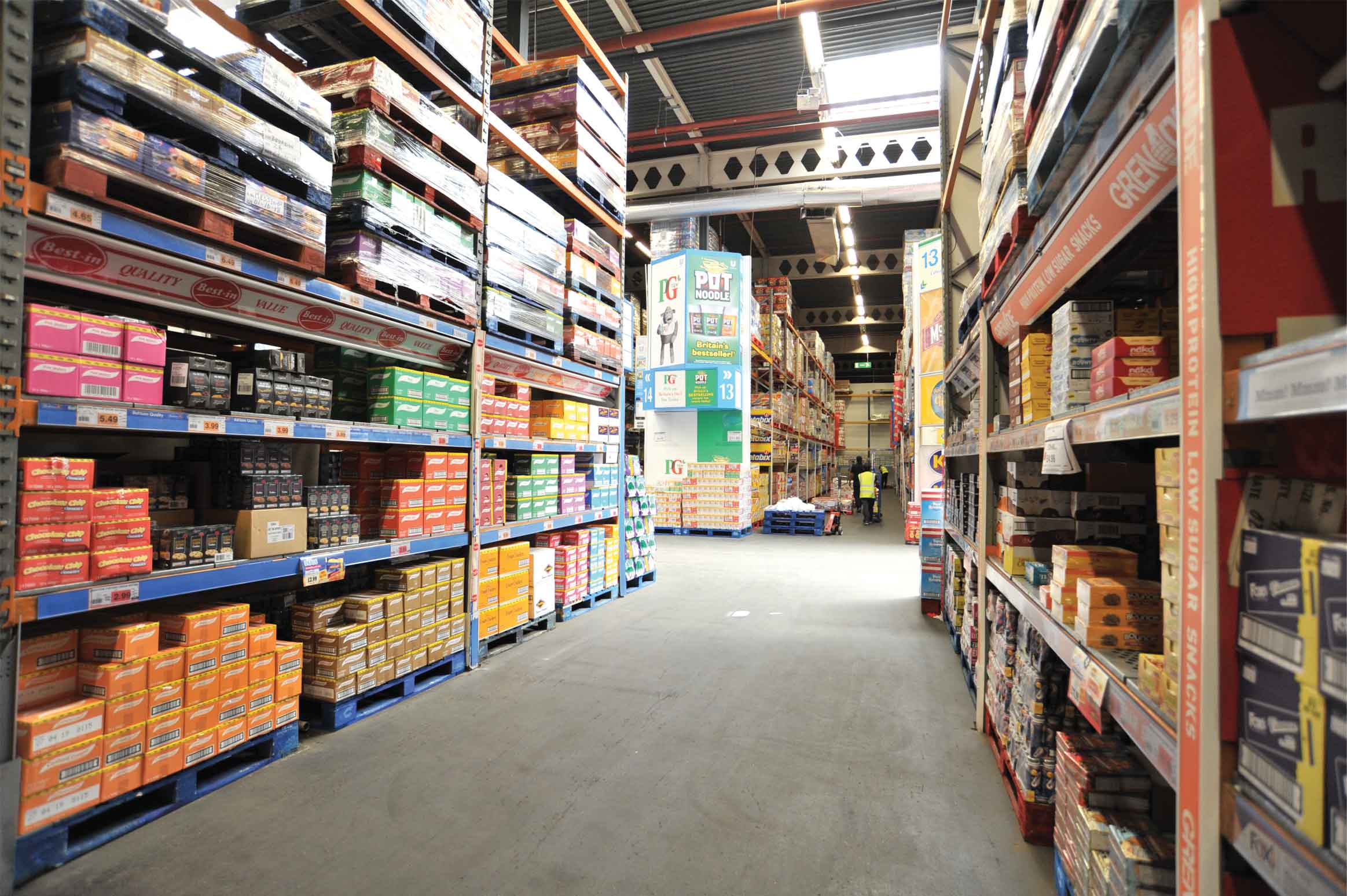The wholesaler-supplier relationship is at the heart of the independent channel, but in a crowded, competitive and increasingly uncertain marketplace, nurturing that relationship has never been more important.
“It’s key for wholesalers and suppliers to build strong working relationships. Sharing plans and strategies can help us build complementary business plans that benefit both parties,” says Ian Patefield, GB wholesale director at Britvic. As more adversarial ways of doing business are giving way to an increased emphasis on collaboration, Better Wholesaling looks at how the supplier-wholesaler relationship can become more meaningful.
Build trust and show commitment
Suppliers must show commitment to the independent channel and wholesalers must build trust in growing category sales. So says Cem Matur, former FMCG category manager with family-run wholesaler Holland Bazaar, who dealt with more than 30 suppliers over four categories before taking time to complete an MBA.
“The key to relationship-building with suppliers is about each party having confidence in each other. I want to nurture contacts and provide a good service because we’re in it for the long term,” he says.
While in post, Matur persuaded 12 major suppliers to switch from a third party to a direct supply arrangement, growing one account from £3,000 to £250,000 in two years.

“It took great persistence, but it paid off. Direct supply enables us to buy cheaper, which makes a huge difference to our margins, but in return we had to be open and take risks on products we hadn’t traditionally stocked,” he says.
Meanwhile, Cotswold Fayre’s managing director, Paul Hargreaves, says fundamental to collaboration is a supplier fulfilling its promises and showing a wholesaler how it plans to build its brand.
“At the start, suppliers say the right things because they want the business, and the challenge is spotting who will actually do what they say. Those who work well with us are completely committed to the wholesale channel,” he says.
To determine who to take on, Hargreaves runs a half-day conference for prospective suppliers so they understand the criteria behind a mutually beneficial relationship. For example, those who have a decent marketing strategy, no matter how small, are more likely to be picked up. “Where the relationship doesn’t work is when suppliers use wholesalers to mop up the odds and sods they don’t want to supply themselves. It completely undermines the relationship,” he adds.
Add value through localised knowledge
There is a vital role for the supplier in communicating tailored category advice and seasonal opportunities to wholesalers, and helping them understand how retailers shop and how to replicate that in depot and online.
For example, in confectionery, Jodie Wood, Ferrero’s business controller, says suppliers and wholesalers need to work hand in hand on tailoring range and promotional activity. “Confectionery as a category has a number of key annual peaks – such as Christmas and Easter – but there are many all-year-round opportunities and growing occasions that wholesalers can support, too.
“By helping wholesalers understand these opportunities, and by using our shopper insights to educate retailers in depot, we can help wholesalers with their ranging decisions, supporting the bestsellers with seasonal products as appropriate,” she says.
However, according to Matthew Moare, of wholesaler Kentish Match, there’s been a drop-off in reps on the road and an increasing information vacuum. “It used to be that a rep stayed with a supplier longer and they knew you and your business, but people move around a lot more now, so there’s a lack of continuity and communication,” he says.
On the flip-side, wholesalers who provide suppliers with up-to-date insight about the customer allows suppliers to better serve them. Yet Matthew Hall, commercial director of Butlers Farmhouse Cheeses, says the process can be challenging, in particular for smaller companies. The fourth-generation Lancashire cheesemaker already supplies into selected multiples, but wants to expand to farm shops and foodservice, via wholesale. “I understand the multiples and what they need, but in the independent sector I am not directly interacting with farm shops or restaurants, so we are relying on our wholesale partners to let us know who they are dealing with, who is buying our products and to bring back that insight, so we can better serve our customers,” he says.
What’s missing, Hall believes, is a faster and more tailored flow of information. “We’ve found many wholesalers still rely on paperwork and don’t communicate digitally. There’s a role for some professionalism in communication standards to the end customer and back to the supplier. For example, we would be completely capable of putting a product range together for an event, but we’re not always fed information about what our end customers are planning. There’s a vital role in the sector for wholesalers who understand their localised market place,” he says.
Data share to improve insight
Many wholesalers are still wary about the practice of sharing data, but could find themselves left behind as technology continues to transform how the supply chain interacts. Britvic’s Patefield emphasises how data sharing can cut through in a diverse and complex sector. “Understanding sales, stockists numbers and the type of outlets buying will help us to align forward forecasts and anticipate future demand to ensure service is delivered to the highest standard possible,” he says.
Moreover, Jason Finch, from sales technology company 443 AI, says that larger suppliers have for some time been looking for deep insight alongside sales data. “Supplier marketing teams are changing in the wholesale channel. There are now more specialist marketing people who have perhaps come from the data-obsessed retail ecommerce world. Wholesalers are now being asked questions that retail marketeers may ask,” he says.
Examples of this include: how does a supplier achieve better engagement? How does online change the communication with the end customers through the wholesaler? How best to blend offline and online promotions? How to displace rival products? What’s deciding which complementary products to show? Where is the trackable return on investment?
Meaningful analysis of where niche or growth opportunities are is not information wholesalers have traditionally delivered, but through intelligent technology, suppliers can have access to this now, adds Finch.
“If you can show that you have smart insights into customer behaviour that others don’t, chances are you’ll get more support from the manufacturer.”
Manage expectations
A positive two-way dialogue and an understanding of each other’s role is vital to managing expectations, says Hargreaves. “We want the sales team to be the supplier’s ambassadors, but the sales team is also selling a lot of products. Being at a supplier’s beck and call is not realistic as the team need to be out selling products,” he says.
In fact, Butler’s Farmhouse Cheese’s Hall says the company tends to use smaller, specialist wholesalers precisely because they are more likely to understand the product and represent it well through its sales teams. “Some wholesalers can have a huge portfolio of SKUs and I feel that can lose them some credibility. They are offering choice, but how helpful is that choice to the end customer?” he asks.
NPD is also an area where meaningful collaboration is key, adds Hargreaves. If Cotswold Fayre has an exclusive arrangement with a supplier, it will commit to every product in its range, including NPD. However, in a good relationship, he says, the supplier will seek advice. “If we are truly working collaboratively, they will talk to us about NPD before they go through with it, and if we are really not keen, they may rethink. If we believe something is going to dilute the range, we will tell the supplier,” he says.
Lastly, with Brexit looming, managing expectations around continuity of supply requires an open line of communication, says Alistair Williams, country director at Scandinavian Tobacco Group UK. “Having a two-way dialogue is really key so we can better understand the challenges they face. This could be anything from sharing regional data on the top-selling cigars in the area or insight into key trends shaping the category, through to offering assurances over the continuity of supply with Brexit on horizon,” he says.
Tailor formats and delivery
Ordering requirements and case formats have not always favoured wholesalers or their retail customers, but changes over the past few years by suppliers have started to address some of these issues. PepsiCo, for example, launched a 32-case format in its crisps portfolio, which included bestsellers in Walkers and Doritos.
Meanwhile, its 48-case format was retained across the top three bestselling Walkers crisps flavours. The logic behind the change, which came into effect three years ago, was to bring new customers into the category, assist retailers with cash flow and enable them to stock up on secondary flavours without wastage.
Britvic’s Patefield agrees that dialogue has been important in reviewing formats and highlights the advantageous position wholesalers have in being able to feedback information.
“Wholesalers can get real-time feedback from outlets and retailers on what can be improved to meet customers’ needs, whether that’s feedback on a case format or an early view on how new products are performing. In turn, we can support wholesalers to keep ahead of emerging trends and the latest changes in the category,” he says.
“More recently, ordering requirements have become a hot topic with many minimum drop terms favouring larger wholesalers. Indeed, the newly formed National Buying Consortium, has also created a National Distribution Network. The aim of this is to “provide a flexible warehousing and logistics service that supports members businesses who cannot meet supplier direct account criteria by offering lower minimum orders at net pricing”.
According to Matthew Moare, of Kentish Match, minimum order requirements can make or break a relationship with a supplier. “Where we’ve got really good relationships with suppliers, I’ve negotiated quite a few times to have a lower minimum drop. Where that doesn’t happen, we probably wouldn’t use that supplier,” he says.
Being part of a buying group can help, adds Moare. “Our backup is central distribution provided by our buying group, Confex. This allows us to spend a set amount on products from different suppliers and have the order sent out from its warehouse. We haven’t had to use this, but we know it’s there.”









I am looking for job am sinalo malongwe from cape town.